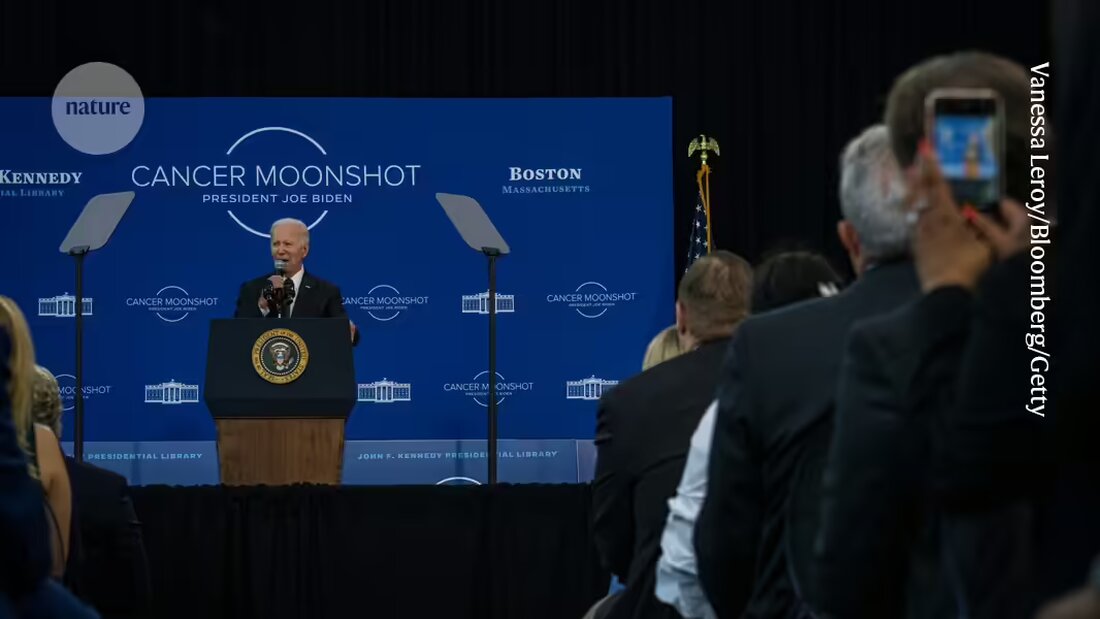Budget cuts hit world's largest funder of cancer research: Impact on scientists
Budget cuts at the US National Cancer Institute could jeopardize cancer research as the number of applicants increases.

Budget cuts hit world's largest funder of cancer research: Impact on scientists
For the first time in nearly a decade, the US National Cancer Institute (NCI) is facing a budget cut - with slim hopes of an increase next year.
The NCI's budget of $7.2 billion in fiscal year 2024 continues to secure its position as largest funder of cancer research in the world. However, that puts the authority $96 million below last year's total, largely due to the expiration of programs like the first Cancer Moonshot Initiative which were financed in addition to the authority's core budget.
Hardly any improvement is expected for the coming year. Through a two-year agreement in the US Congress to to limit national debt, the NCI is unlikely to see an increase in 2025, says Jon Retzlaff, chief policy officer at the American Association for Cancer Research (AACR) in Philadelphia, Pennsylvania. “We will probably be in this situation again next year,” he explains. “It's very difficult to convince legislators that this is an area they can increase when at the same time they have to make drastic cuts to many other programs.”
Still, the NCI stuck to an ambitious $11.5 billion target for its 2026 budget proposal, released Sept. 4. However, this was the same budget the authority had already proposed in its 2025 application. This is unusual: institute directors typically increase their proposed budget every year. (The NCI is part of the US National Institutes of Health, but submits a separate budget request annually, sometimes called a bypass budget.)
“It didn’t seem prudent to give an even larger number at this current stage,” NCI Director Kimryn Rathmell said during a Sept. 3 meeting with NCI advisers. "We are trying to signal that we understand. We are aware of the financial reality and recognize the real economic constraints that our country faces."
Behind the decline
The decline in the NCI's budget does not mean the agency has lost bipartisan support from U.S. lawmakers, Retzlaff explains. The decrease in funding is not due to cuts to the agency's base budget, but rather because dedicated, separately funded programs administered by the NCI have expired and not been replaced. This includes the original Cancer Moonshot program, funded by the 21st Century Cures Act, which took effect in 2016.
However, over the past two decades, the steady growth of NCI's funding has not translated into an increase in purchasing power, said Weston Ricks, director of the NCI's Office of Budget and Finance, during the Sept. 3 meeting. In absolute dollars, the NCI's base budget has increased from $4.6 billion in 2003 to $7.2 billion in 2024. However, this increase corresponds to a loss of purchasing power of 15% after the rate of biomedical inflation was taken into account, which typically exceeds general consumer inflation, said Ricks.
Meanwhile, the number of grant applications to the NCI has increased 40% over the past decade, compared to 17% at other institutes and centers of the National Institutes of Health.
With all of this in mind, the institute has to make some difficult decisions, Rathmell said. The agency will prioritize studies that could lead to new therapies over research projects aimed at improving access to existing therapies. It will also favor research projects initiated by applicants rather than grants focused on specific topics selected by NCI officials.
Rathmell also committed to keeping the proportion of grants awarded to young researchers stable—an approach the AACR supports, Retzlaff says. “This pipeline is the future of cancer research,” he emphasizes. “This has to be a priority.”

 Suche
Suche
 Mein Konto
Mein Konto
